Nov
3
2010
“Adam himself was to bring both death and life into the world through wise judgment.”
 .
.
The view that the death and resurrection of Christ purchased back for us the innocence (and innocent world) of Genesis 1 seems extremely childish to me now. How did we miss the fact that the Old Testament is filled to overflow with deaths and resurrections, personal, familial, national and imperial? There was no death before sin, but the scenario deliberately set up by God in Genesis was to bring Adam to a point of making a wise judgment. He was to crush the head of the serpent. In a sense, he was to kill death. His obedience would guarantee future life, but his obedience itself was a form of death. Obeying God is a daily dying, but as Paul understood, it was a dying so that there might be rejoicing on the other side. Obedience is a death that makes a judgment call to purchase, nay, miraculously create, new life. The original creation was set up, wound up, to go somewhere better, to be something greater.
Peter Leithart gave some lectures on the writings of Eugen Rosenstock-Huessy in 2008: Continue reading
Comments Off | tags: Eugen Rosenstock-Huessy, Genesis, Nietzsche, Obedience, Peter Leithart, Postmillennialism, Resurrection | posted in Biblical Theology, Creation, Quotes
Oct
29
2010
The Slow Wheels of Justice
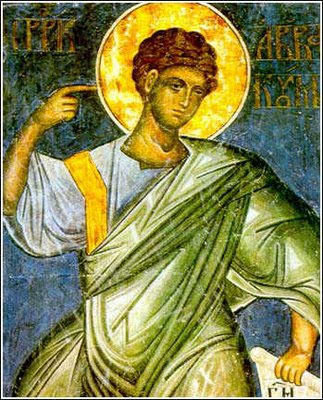
I am Habakkuk the prophet. And this is the message that the LORD gave me. Our LORD, how long must I beg for your help before you listen? How long before you save us from all this violence? Why do you make me watch such terrible injustice? Why do you allow violence, lawlessness, crime, and cruelty to spread everywhere? Laws cannot be enforced; justice is always the loser; criminals crowd out honest people and twist the laws around.
Habakkuk 1:1-4
[Part 1 here.]
Perhaps there is more to this idea of “suing God” than a mere Puritan quote, especially when God Himself fails to keep His own rules, when God Himself appears to break Covenant.
Continue reading
Comments Off | tags: Abel, AD70, Covenant curse, Covenant Theology, David, Habakkuk, Judges, Peter Leithart, Postmillennialism, Revelation, Samson | posted in Biblical Theology, Quotes, The Last Days
Oct
26
2010

“When you read the Bible, be careful of adopting a bunch of mechanical rules to read by… You know, you can go to the Christian bookstore, or the seminary bookstore, and you can get books by popular writers and by professors of theology on how to read the Bible: ‘rules for reading.’ And there is much that is useful and good in some or all of those books. But we must ask ourselves, what other book have you ever read using rules? Do you have a book of rules to read the newspaper by? Or if you want to read a novel by Jane Austen, must you consult a book of interpretive laws? Or a textbook on American history? Or do you just read it? It’s kind of odd that we have covered the Bible up with ‘rules on how to read.’ We don’t read anything else by rules. So what’s going on here? Continue reading
Comments Off | tags: Hermeneutics, James Jordan, Science | posted in Bible Matrix, Biblical Theology, Quotes
Oct
19
2010
or Correspondence Will Be Entered Into
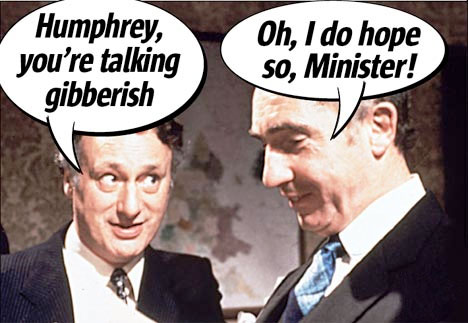
The recent Australian federal election resulted in a hung parliament, with the balance of power held by a small number of elected independents. Not being forced to toe the party line, each of these men is free to stand for the needs of his own electorate. This can certainly slow down the process of government in the courts of men, but not in the courts of God.
As Christians, we are taught to toe the party line. This is a false piety. Our Father actually loves a lively, argumentative parliament. The process of maturity is supposed to bring us to the point where we are wise judges whom He can include in His government (pictured in baptism), standing on the crystal sea as joint heirs with His Son, Great Prophets whose very words change history.
Back room deals and bargaining with God are an abuse of prayer. Or are they? Not when those disputing with God are men whose hearts are like those of the Father. Abraham and David did it. God’s desire is that we should be like them. Continue reading
1 comment | tags: Abraham, Ascension, David, Doug Wilson, John Bunyan, John Piper, Parenting, Prayer, Psalms | posted in Bible Matrix, Biblical Theology, Christian Life, Quotes
Oct
15
2010

or Commanded, Not Controlled
“Josiah was eight years old when he became king, and he reigned thirty-one years in Jerusalem… And he did what was right in the sight of the LORD, and walked in all the ways of his father David; he did not turn aside to the right hand or to the left.” 2 King 22: 1-2
As a very young Christian, I remember being disappointed that the Spirit of God didn’t immediately make obedience to God’s Law easier, well actually, totally easy. Getting into Jordan et al opens up to you the biblical theme of maturity, of God’s desire for us to become wise judges, turning neither to the right nor the left. This takes practice (Hebrews 5:14).
The apostles’ use of the words “obedience” and “disobedience” when it comes the gospel is mysterious to many evangelicals. Is this not works?
“Therefore, King Agrippa, I was not disobedient to the heavenly vision…” Acts 26:19
“Then the word of God spread, and the number of the disciples multiplied greatly in Jerusalem, and a great many of the priests were obedient to the faith…” Acts 6:7
“But they have not all obeyed the gospel. For Isaiah says, ‘Lord, who has believed our report?’” Romans 10:16
Continue reading
4 comments | tags: Covenant Theology, Dominion Theology, Obedience | posted in Biblical Theology, Christian Life, Quotes
Oct
14
2010
The Killing Field
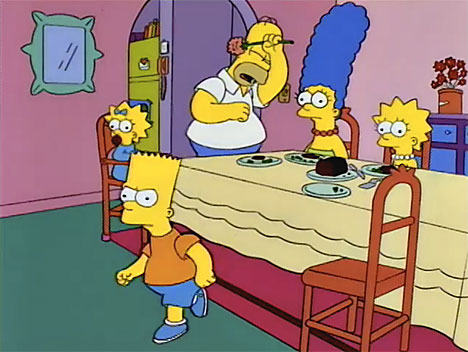
“…that on you may come all the righteous blood shed on the Land, from the blood of righteous Abel to the blood of Zechariah, son of Berechiah, whom you murdered between the temple and the altar.” Matthew 23:35
“from the blood of Abel to the blood of Zechariah who perished between the altar and the temple. Yes, I say to you, it shall be required of this generation.” Luke 11:51
The Hebrew word for “land” is feminine. [1] The fruitful Bride is pictured in the fruitful field. Both are to be cultivated and cared for under God by Covenant.
When the priesthood was faithful, God promised to make the people, animals and Land fruitful: the Covenant “to,” the input of the Spirit as Head, as Covenant Word made flesh. Deuteronomy 28 gives a long list of ways in which God would make her abundant. Continue reading
1 comment | tags: Abel, Atonement, Cain, Covenant curse, Covenant Theology, Culture, Deuteronomy, Genesis, James Jordan, Judges, Leviticus, Noah, Peter Leithart, Ruth | posted in Biblical Theology, Quotes
Oct
4
2010
Beyond Binary

“In my Father’s house are many mansions…”
There are various covenants in the Bible, just as there are in human life. Covenants are the way God does things.
He calls a representative,
…..delegates His authority,
……….gives the mission,
……………allows time for it
……….to be accomplished,
…..assesses the outcome
and throws a party.
If the outcome is good, the delegate and his mission subjects are invited to the feast. If the outcome is bad, the delegated head and his corrupt body are the meat on the table. And the Holy Ones rejoice over their doom. There is always an outcome, a reckoning, a succession, an “offspring.” Continue reading
Comments Off | tags: Covenant Theology, Doug Wilson, Genesis, James Jordan, Postmillennialism, Tabernacle, Trinity | posted in Bible Matrix, Biblical Theology, Creation, Quotes
Oct
2
2010

The content of this post has been revised and included in Bible Matrix II: The Covenant Key.
___________________________________________
[1] See Behold Your Mother.
[2] See Incantation or Incarnation.
[3] Ray R. Sutton, That You May Prosper, pp. 73-75. Forget Calvin. Forget Barth. This book is a must-read.
[4] See Little Man With No Hair and Veiled Lawlessness.
Comments Off | tags: Covenant curse, Covenant Theology, Postmillennialism, Ray Sutton, Tabernacles, Zechariah | posted in Bible Matrix, Biblical Theology, Ethics, Quotes
Sep
30
2010
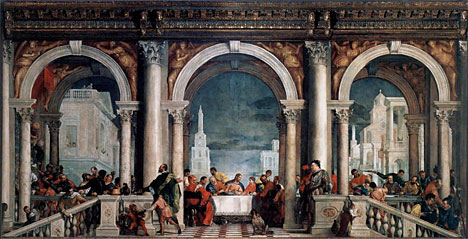
Cooking as Eschatology
But while they still did not believe for joy, and marveled, He said to them, “Have you any food here?” So they gave Him a piece of a broiled fish and some honeycomb. And He took it and ate in their presence.
NOTE: THIS POST HAS BEEN REMIXED AND INCLUDED IN GOD’S KITCHEN.
Thanks to Doug Wilson’s recommendations of it, one of the books I took to hospital was The Supper of the Lamb by Robert Farrar Capon. It is a mouth-watering fusion of cookbook and theology, pushing the idea of multi-disciplinary insights to the outer limit. But then, we moderns don’t have such biblical horizons, do we? We refuse to see the world as the Bible reveals it to us.
Continue reading
1 comment | tags: Daniel, Doug Wilson, Esther, Food laws, James Jordan, Leviticus, Noah, Robert Farrar Capon | posted in Apologetics, Bible Matrix, Biblical Theology, Christian Life, Creation, Quotes, The Restoration Era, Totus Christus
Sep
29
2010
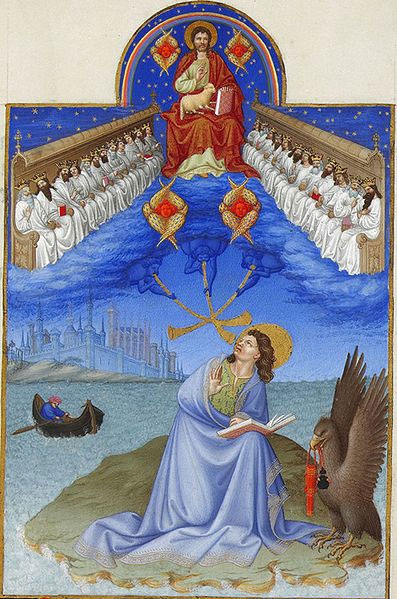
“What was from the beginning, what we have heard, what we have seen with our eyes, what we have gazed upon and our hands handled concerning the word of life—and the life was manifested, and we have seen and bear witness and announce to you the life, the eternal one, which was toward the Father and was manifested to us—what we have seen and heard, we announce also to you…”
IF I BELIEVE that the first resurrection occurred around AD70 [1], and that the New Covenant administration consists of saints living and reigning with Christ in heaven [2], these “joint-heirs” become co-mediators in some fashion. Does this open the door to the Roman Catholic practice of praying to glorified saints, or to the Eastern Orthodox love for beautiful icons?
Continue reading
8 comments | tags: AD70, Holy Place, John, Millennium, Peter Leithart, Revelation 20, Roman Catholicism | posted in Against Hyperpreterism, Biblical Theology, Quotes, The Last Days
 .
.

































